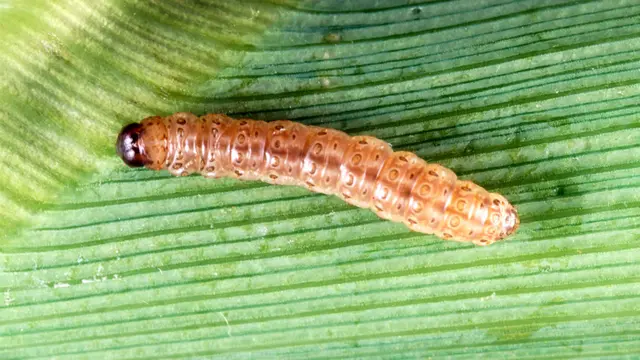A recent study by the Centre for Agriculture and Bioscience International (CABI), published in the CABI Agriculture and Bioscience journal, highlights that strengthening the plant health system in South Sudan could significantly reduce crop losses attributed to climate change-induced invasive pests.
The study reveals that climate change has introduced new pests and diseases that impact crops, including elegant grasshoppers (Zonocerus sp.), bollworms, cassava whiteflies, cutworms, African armyworms, stalk borers, and aphids. Notably, the fall armyworm (FAW) has emerged as a significant threat in South Sudan, as identified in a report by the Food and Agriculture Organization (FAO).
South Sudan is recognized as one of the world’s climate change hotspots, experiencing an increase in extreme weather events that adversely affect plant health. This situation is particularly concerning for the approximately 86% of rural households that rely on agriculture for their livelihoods, as indicated by a report from the UN Environmental Programme (UNEP).
A situational analysis involving 960 farmers in Juba, Yambio, and Yei revealed that access to plant health services, such as advisory and extension services, training, and information, is quite limited. Consequently, farmers have turned to NGOs and UN agencies for support, exposing a gap in government-led initiatives.
The FAW, a relatively new pest, not only affects maize, a staple food crop in South Sudan, but also damages sorghum, millet, vegetables, and other crops. Reports indicate that FAW has been found in various regions, including Equatoria, Northern Bahr el Gazal, and parts of Jonglei.
A report identified several plant diseases of concern, such as cassava mosaic virus, pearl millet downy mildew, rust affecting maize and sorghum, and late blight impacting tomatoes. While comprehensive data on yield losses due to climate change effects are limited, the study points out that a significant portion of South Sudan’s population faces moderate to severe food insecurity, primarily due to climate-induced shocks like pests, diseases, floods, and droughts.
For instance, a CABI report noted that the papaya mealybug, a new pest in South Sudan, can cause yield losses of up to 91% in papaya, severely affecting smallholder farmers’ livelihoods. The cassava brown streak disease (CBSD) and the increasing prevalence of cassava mosaic disease (CMD) also have significant economic impacts. Data from East and Central Africa indicate that CBSD and CMD can cause yield losses of up to 70% and between 77% and 97%, respectively, with estimated annual losses ranging from $100 million to $2.7 billion.
South Sudan’s plant health system (PHS) faces challenges due to weak institutional and regulatory capacities and a limited supply of quality planting materials, leading to a reliance on imported seeds and services. The PHS has evolved from traditional and chemical-based practices to include plant clinics and expanded extension services focused on best practices in plant health management.
The study advocates for a robust PHS that utilizes a systems approach to plant health delivery, proposing strategic interventions to address the country’s inherent plant health challenges effectively. Additionally, there are opportunities to enhance farmers’ knowledge and adoption of integrated pest management practices through improved advisory services, plant health information, and agricultural training. This could ultimately contribute to increased agricultural productivity and sustainability in South Sudan.


